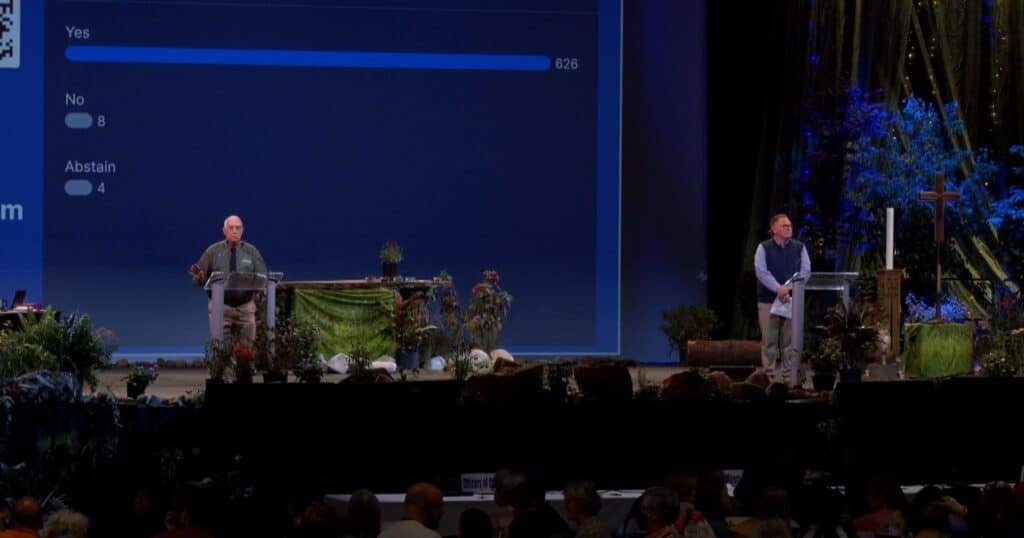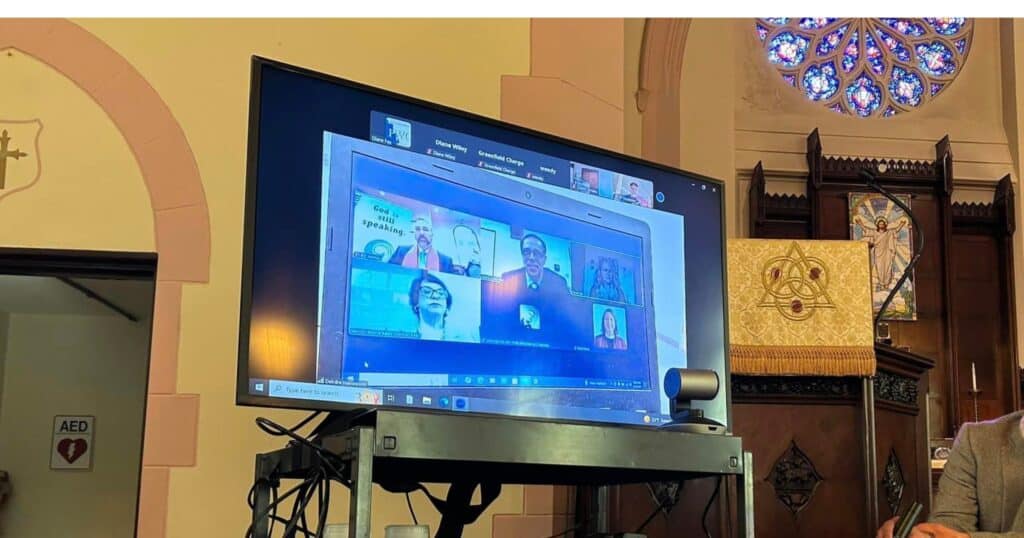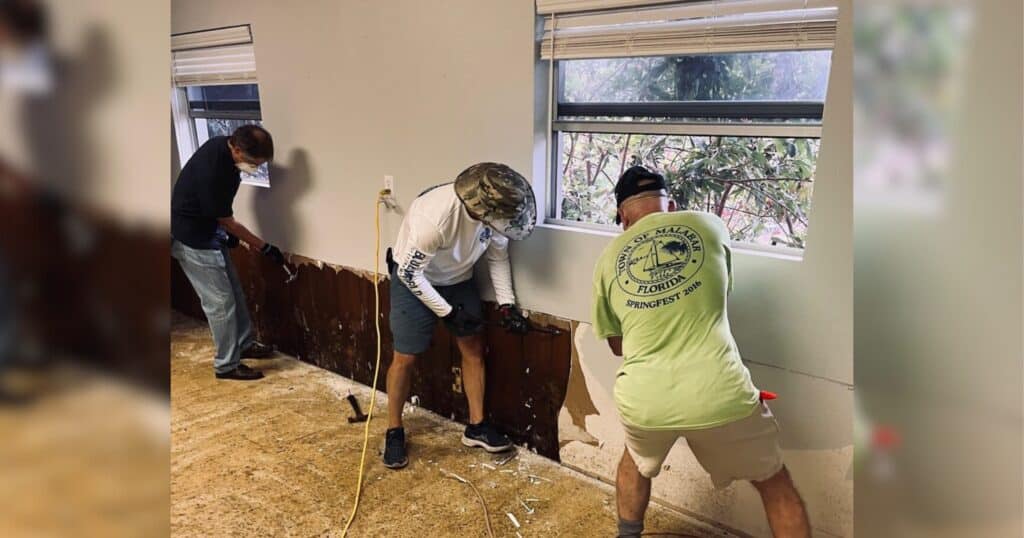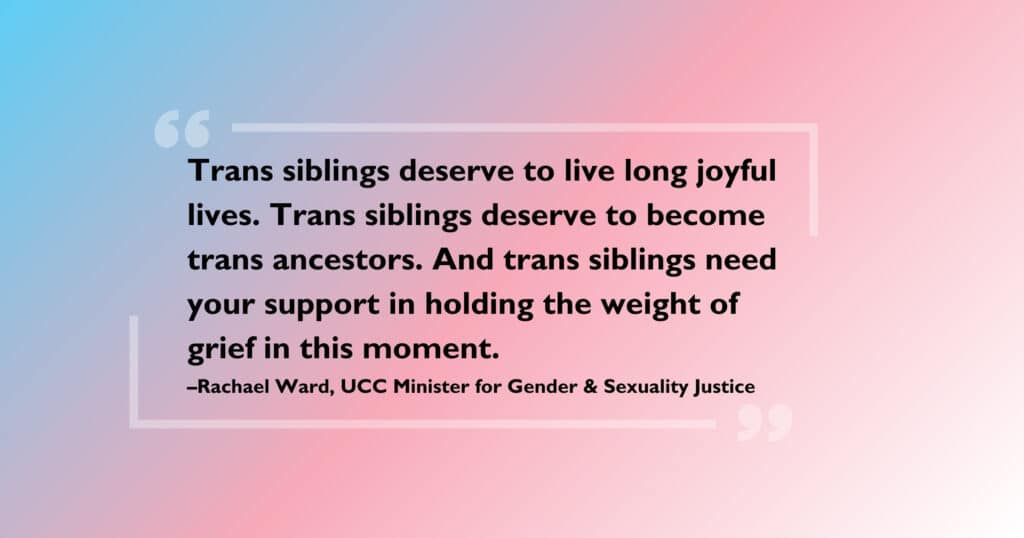Synod takes stand for digital justice, calls for increased accessibility
In a near-unanimous vote the evening of July 3, the General Synod of the United Church of Christ declared that “the globally widening digital divide and lack of digital inclusion” is a “justice issue,” and called on all settings of the denomination to press for “increased affordability, accessibility, training and support.”
Starting in 1973, four UCC General Synods have adopted resolutions aimed at concerns about evolving technologies and communications systems, particularly evidence that they can contribute to widening socio-economic gaps and other inequities.
This latest resolution noted that the COVID-19 pandemic had again “laid bare the injustice of the digital divide, further widening educational, economic and opportunities gaps between those who have high-quality digital access and those who do not.”
A timely resolution
The resolution turned out to be particularly timely. A week earlier, the White House announced the allocation of $42.5 billion in Broadband Equity, Access and Deployment (BEAD) funds to states and territories.
Low-income persons and persons living on tribal lands are also now eligible to apply for the Affordable Connectivity Program, a new initiative that provides discounts on Internet access and certain devices.
“The United Church of Christ is a known and respected leader in media justice,” said Cheryl Leanza, policy advisor to the UCC Media Justice Ministry, who helped author the resolution. “And with this vote, we reaffirm our leadership. Now UCC members, congregations, Associations and Conferences can take action — whether that means distributing information about Internet subsidies for low-income people or working with state broadband offices to ensure the equitable deployment of broadband services in their states.”
Access is ‘a survival skill’
The resolution was sponsored by 13 General Synod delegates from across the United States. During committee deliberations, the resolution’s lead sponsor, the Rev. Kelli Parish Lucas of the Rocky Mountain Conference, described how the problems of access were driven home to her when she moved from southern California to First Congregational Church in Rock Springs, Wyo., and discovered that “when the winds were really strong,” she lost her Internet access.
“The poorest of the poor in my community rely on the Internet for everything,” she said.
People came to her church to get help in paying their Internet bills. Access, she said, is “a survival skill,” required for receiving social services, education, health care, interviewing for jobs and pursuing academic opportunities.
Lucas also saw the resolution as an issue that supports the needs of both rural churches and urban churches serving low-income persons.
“It’s also about how to move our churches into the future,” she added. But it’s not just for our churches, she noted: “The Internet does not belong to us.”
Digital inclusion as justice
The Synod committee ultimately sent the resolution to the floor without amendments. The committee’s chair, the Rev. Fred Young of the Penn Central Conference, said during plenary that the resolution itself “provided the information to do the work at hand.”
The committee concluded that the original text “hit the tone of the room.” He reasserted that “digital inclusion is a justice issue.”
Citing the Gospel of Matthew, Young added, “The least of these include those who lack access to the world’s technologies.”
The Rev. Terry Yasuko Ogawa, an Area Conference Minister for the Southern New England Conference and a committee member, urged delegates to study the resolution and use it to connect with their communities.
“There are groups that need help,” she said. “… Funding is available. It’s just a matter of connecting to the folks who are already doing this work.”
Sara Fitzgerald, a General Synod newsroom volunteer, is a member of Rock Spring Congregational UCC in Arlington, Va., and a member of the board of the UCC Media Justice Ministry.
Content on ucc.org is copyrighted by the National Setting of the United Church of Christ and may be only shared according to the guidelines outlined here.
Related News
All four Pennsylvania conferences pass motion toward one combined conference
On Nov. 9, each of the four United Church of Christ conferences in Pennsylvania passed the...
Read MoreFlorida UCC churches organize helping hands in wake of recent hurricanes
The gulf coast of Pinellas County, Florida recently suffered a destructive double whammy...
Read MoreCommentary: Honoring queer lives, remembering trans siblings lost
This week marks Transgender Day of Remembrance (TDOR), an annual time of mourning and honoring...
Read More


